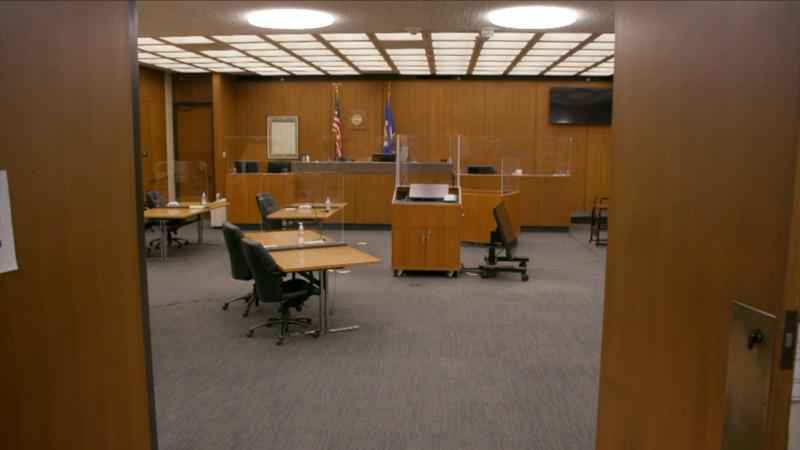Juror responses from Chauvin trial provide window into Potter jury pool
[anvplayer video=”5074342″ station=”998122″]
For the second time this year, a jury in Hennepin County will decide the fate of a former police officer who is charged in the death of a Black man.
Former Brooklyn Center police officer Kim Potter will stand trial in December on first and second-degree manslaughter charges in the shooting death of Daunte Wright. Prosecutors say Potter shot Wright during a traffic stop in April.
The shooting happened in the middle of the Derek Chauvin trial, the former Minneapolis police officer who was convicted of the murder of George Floyd.
On Tuesday morning, dozens of potential jurors will arrive at the Hennepin County Courthouse to learn if they’ll serve on the jury in Potter’s trial. The process of jury selection began months ago, and attorneys and researchers say analyzing the jury pool from the Chauvin case gives us a window into the group that will be questioned this week.
"One of the best predictors of how people will behave is some of these sort of deep core beliefs they have," said John Campbell, founder of the Denver Empirical Justice Institute, a group that studies jury behavior.

[KSTP]
To learn about those feelings, the court sent a 15-page questionnaire to more than 450 people in the jury pool in Potter’s case, asking for responses to everything from media habits, to police contacts and feelings about the criminal justice system.
Jurors in the Chauvin trial filled out a nearly identical questionnaire last year. Earlier this month, the court made those documents public. 5 INVESTIGATES reviewed more than a hundred of those completed questionnaires looking at how jurors felt about race and policing.
The data revealed an overwhelming majority agreed that police "make me feel safe." But the responses also revealed deep skepticism of law enforcement.
Only 20% believed officers shouldn’t be second-guessed for decisions they make while on duty because they "have such dangerous jobs," and only 14% of jurors agreed with the statement "police in this country treat whites and blacks equally."
"That’s a pretty pronounced slant," Campbell said, responding to the numbers. "This was a big sample. It is somewhat unusual to see slants that big in a population."
Campbell said one reason could be an increase nationally in the level of distrust of the police. The data also showed a divide over feelings about Black Lives Matter and "blue lives matter."
Fifty-seven percent of jurors in the Chauvin pool reported favorability toward Black Lives Matter, while only 31 percent reported those same feelings about "blue lives matter."
Campbell said he would expect an "identical statistical mix" of jurors in Potter’s case, given that the pool is pulled from the same geographic area and that the Chauvin trial happened just seven months ago.
"That sort of snowball or contagion effect … gets very real when you see cases close in time in the same spot," he said.
Attorneys will get to probe further the potential jurors’ feelings and answers to the questionnaire during jury selection. Fred Friedman, a retired public defender, said this phase is critical.
"Lawyers are always wondering, are they giving the appropriate answer, the proper answer, the polite answer, the Minnesota-nice answer, or the truth," he said.
Friedman, the longest-serving chief public defender in Minnesota history, now teaches criminal justice at the University of Minnesota-Duluth and trains trial attorneys across the country.
He said the prosecution and defense in the Potter trial will ask different questions to try and find their ideal juror.
"Prosecutors are going to be looking for somebody who believes nobody’s above the law," Friedman said. " [The] defense, they’re going to be looking for jurors who support law enforcement."